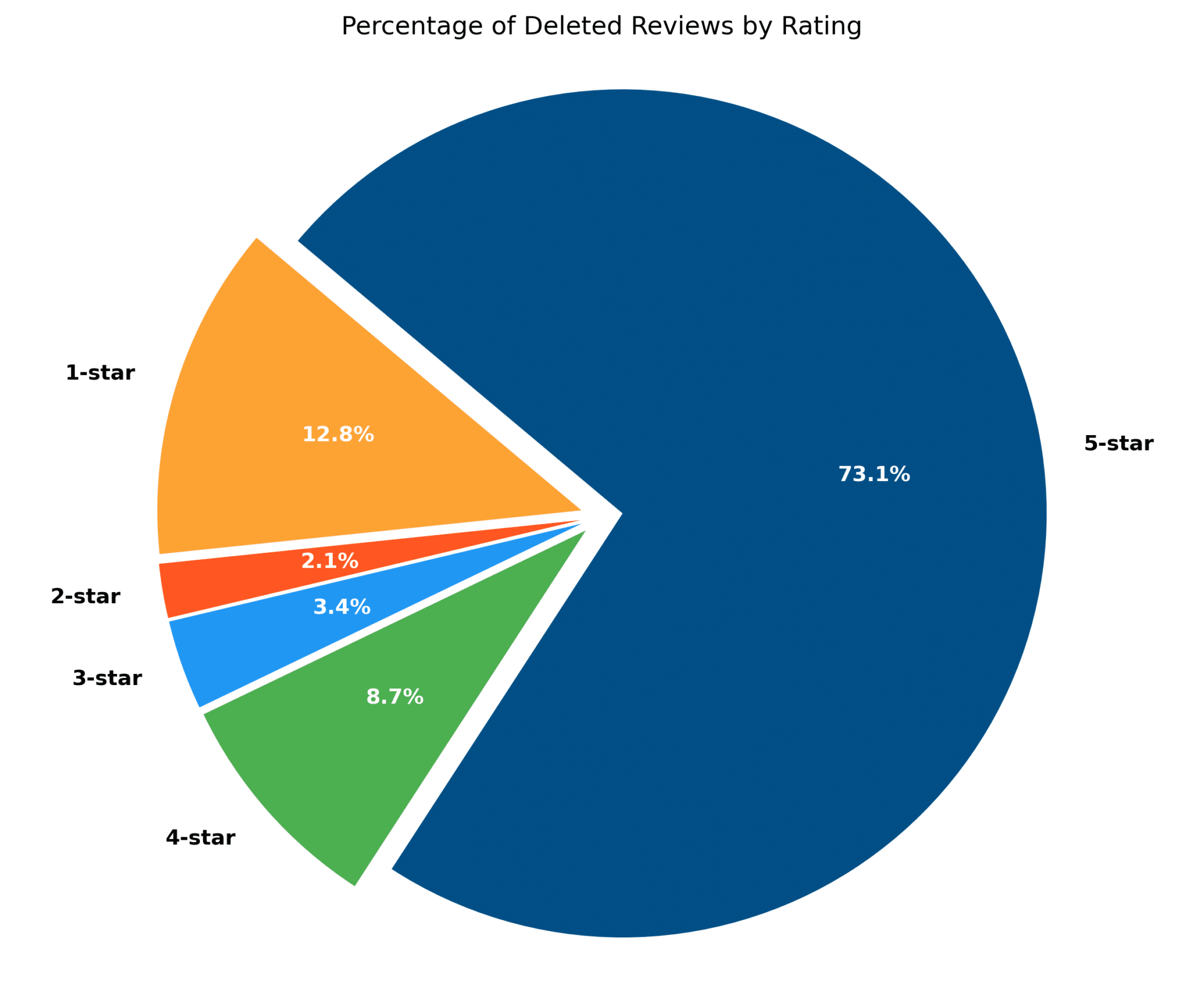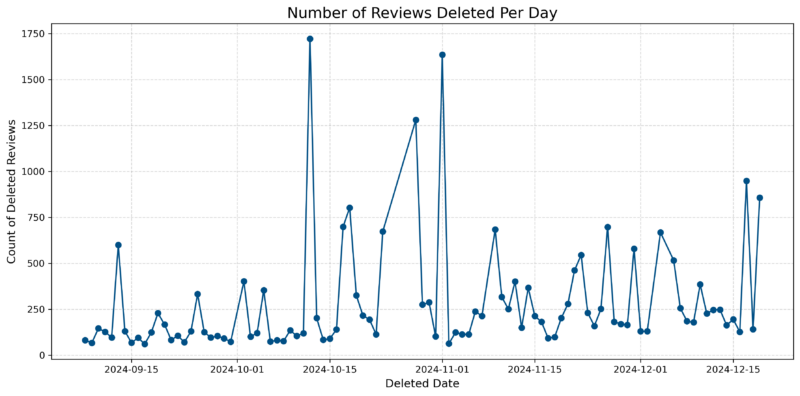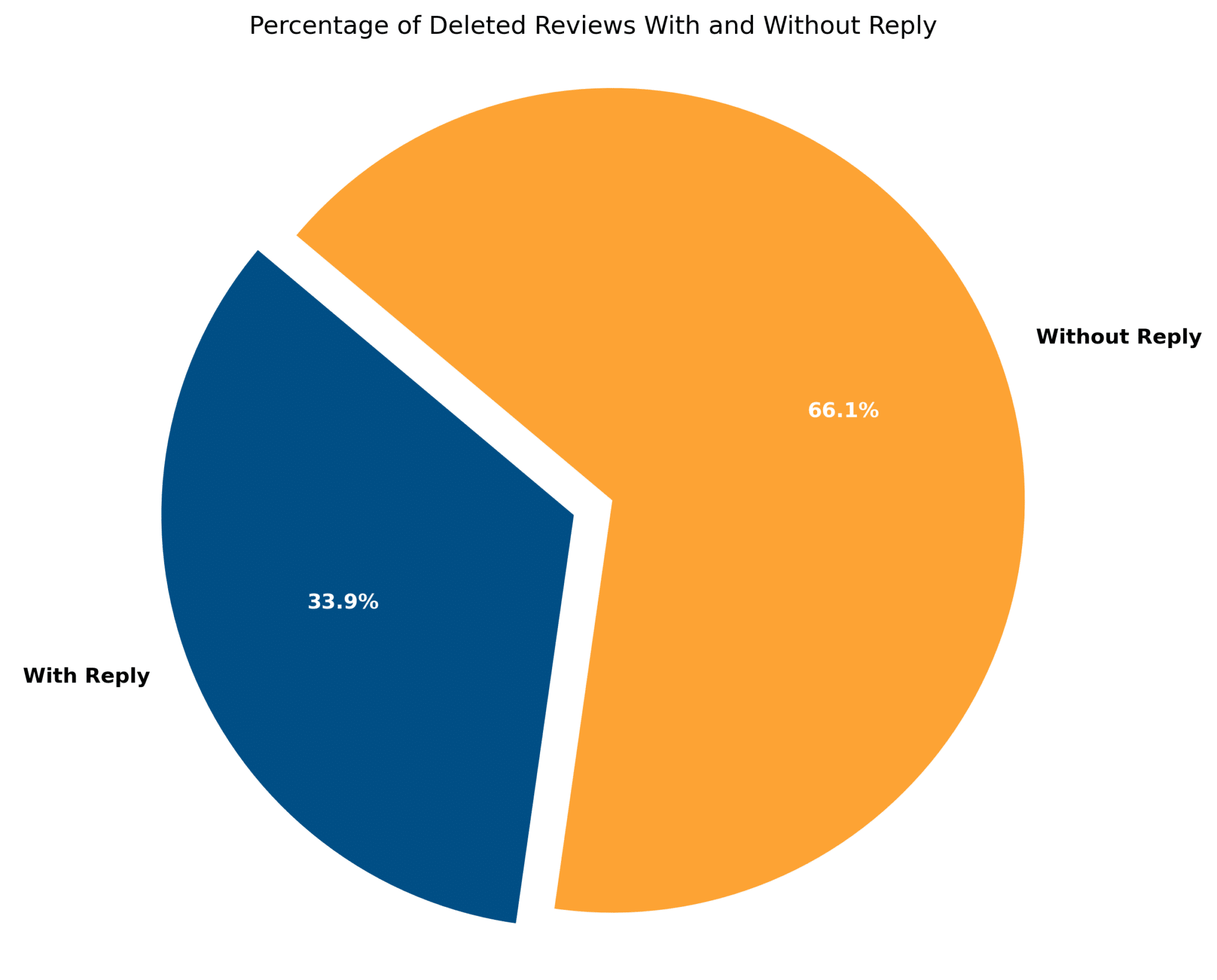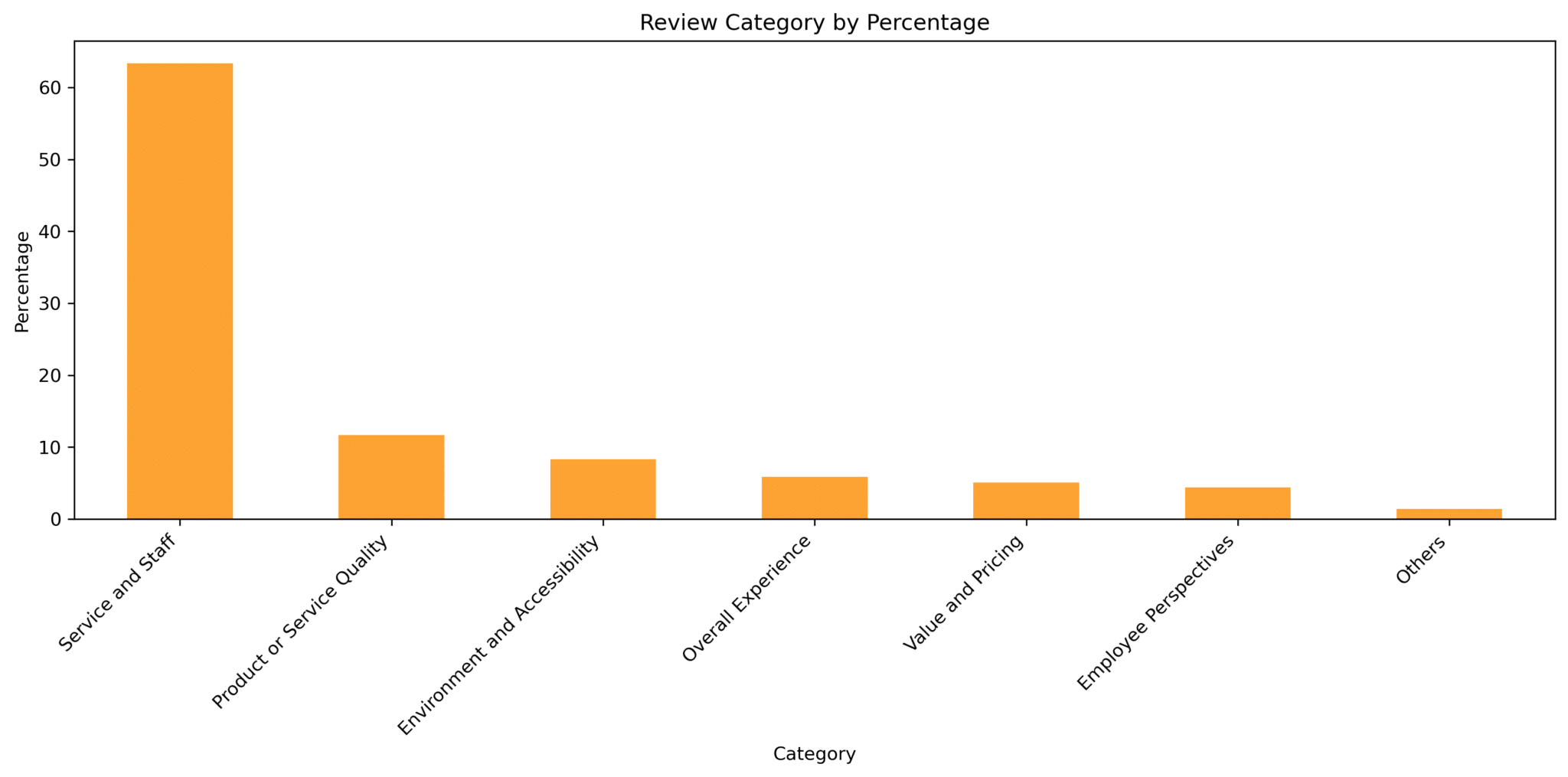Google’s review deletions: Why 5-star reviews are disappearing
Google is deleting 5-star reviews at an alarming rate. Learn what it means for your business and how to safeguard your online reputation.
Google reviews are powerful. They’re essential for building trust, attracting customers, and boosting local SEO.
But what happens to your local visibility and online reputation when these valuable reviews suddenly vanish?
We’ve recently noticed a concerning trend:
A significant number of reviews are being deleted. And not just the negative ones.
To uncover the reasons behind these deletions, GMBapi (disclosure: I’m co-founder of the company) conducted extensive research, analyzing 5 million reviews from our customer base across 79 countries and over 20,000 locations.
The results were surprising, to say the least.
The 5-star shocker: Google’s war on fake reviews
While you might expect negative reviews to be the primary target, our analysis revealed that a staggering 73.1% of deleted reviews were actually 5-star ratings.
This indicates that Google is actively combating fake and incentivized reviews, aiming to maintain the integrity of its platform.
Businesses that engage in practices like buying reviews or offering incentives in exchange for positive feedback will likely see those reviews disappear (and run the risk of the reviews section being disabled with an explanation of why this was done).
Interestingly, while 1-star reviews were significantly fewer than 5-star reviews overall, they ranked as the second most frequently deleted, likely due to violations such as inappropriate language.
Moderate reviews (2 to 4 stars) were less likely to be deleted, as they generally appear more balanced and have a smaller impact on business reputation compared to extreme ratings like 1-star or 5-star reviews.


Could review deletions in the future be linked to algorithm updates?
Could future major Google algorithm updates lead to increased scrutiny of reviews, with those deemed low-quality or inauthentic being removed?
If so, staying informed about Google’s algorithm updates can help businesses anticipate and prepare for potential review quality algorithm fluctuations.
We know Google’s Trust & Safety team (that manages the review algorithms) is different than the team that works on the algorithm. So this is unlikely.
Nevertheless, it makes sense if you think about the way Google uses reviews in its local ranking algorithm, the new AI description of Google Business Profiles, and the AI Overview on the SERP.
The major spikes in review deletion for our customer base occurred on Oct. 12, Oct. 28, and Nov. 1.
No official Google updates were released in October. However, our research on deleted reviews (on 20,000 deleted reviews) and Localo’s analysis of 50,000 deleted Google reviews draw different conclusions about the timing of these changes.
Discussions in the Local Search Forum further confirmed the rise in review deletions during September and October, suggesting that there were noticeable shifts in review moderation.
The link between these updates and review deletions hasn’t been fully explored in the SEO world yet. However, we think that Google might start tying those together.
These algorithm changes, as they start using review data for more and more elements on the SERP, could potentially influence how review quality is moderated.
The power of engagement: Responding to reviews matters
A significant finding was that 66.1% of deleted reviews had no business replies. This suggests that engaging with reviewers, both positive and negative, can reduce the likelihood of deletion.
Responding to reviews demonstrates to Google that you value customer feedback and are actively involved in managing your online reputation.
The main reason to reply to reviews is to show prospects you care about your customers enough to reply to them.
We’re sure of the positive impact of replying to reviews on your average rating (reviewers tend to be less negative mostly) and conversion (if one handles the review replies well).

‘Service and staff’ reviews: A high-risk category
Interestingly, the most common category for deleted reviews was “Service and Staff” – reviews about customer service quality, staff friendliness, expertise, or responsiveness.
This could be attributed to this category’s high volume of reviews, making it more susceptible to generic or inauthentic feedback.
Businesses should encourage detailed and specific reviews that highlight genuine customer experiences.

Machine learning insights: Sentiment, length, and rating
We developed a machine learning model using the Random Forest algorithm to understand the factors influencing review deletion.
Our analysis revealed that review sentiment, length, and rating all impact Google’s moderation process.
While sentiment analysis and ratings help identify overly positive or negative reviews that may warrant further scrutiny, shorter reviews might be flagged as lacking substance.
Beyond the text: The importance of reviewer behavior
While our model focused on review-specific data, other research highlights the importance of considering reviewer behavior.
Factors like the number of reviews a user posts, the average length of their reviews, and the timeframe over which they post can be strong indicators of authenticity.
As AI-generated reviews become more sophisticated, incorporating user-centric features into machine learning models can significantly improve the accuracy of detecting fake reviews.
Recommendations for businesses
- Engage with reviewers: Respond promptly and thoughtfully to all reviews, demonstrating your commitment to customer satisfaction.
- Embrace local SEO tools: Use Google review management software to track, analyze, and respond to reviews across multiple locations.
- Avoid incentivized reviews: Focus on organically encouraging genuine customer feedback to build a trustworthy online reputation.
- Stay informed: Keep abreast of Google’s content policies and algorithm updates to ensure your reviews comply with the latest guidelines.
- Report fake reviews: Actively report spam or inauthentic reviews to Google, contributing to a fair and transparent review ecosystem.
What you need to know moving forward
Google’s review deletion process reflects its commitment to maintaining a trustworthy platform for both businesses and consumers.
We suspect that the usage of Google reviews to power Google’s AI Overviews (for local businesses) makes this even more important (for Google and local businesses).
By understanding the factors influencing Google’s take on your reviews and these deletions, businesses can proactively manage their online reputation and foster authentic customer engagement.
It remains business critical to protect and enhance your online presence in the increasingly complex local marketing landscape.
Contributing authors are invited to create content for Search Engine Land and are chosen for their expertise and contribution to the search community. Our contributors work under the oversight of the editorial staff and contributions are checked for quality and relevance to our readers. The opinions they express are their own.
Related stories